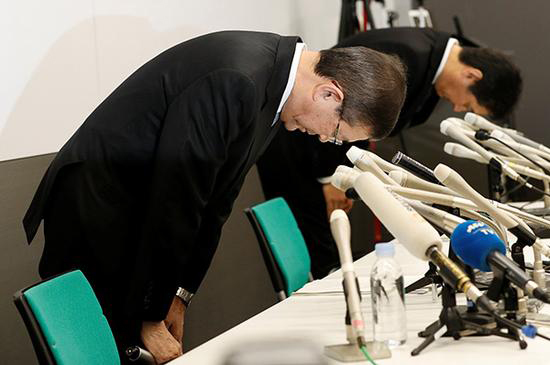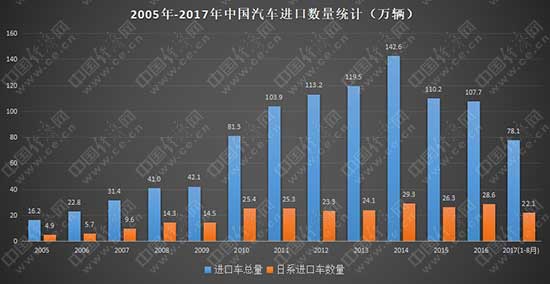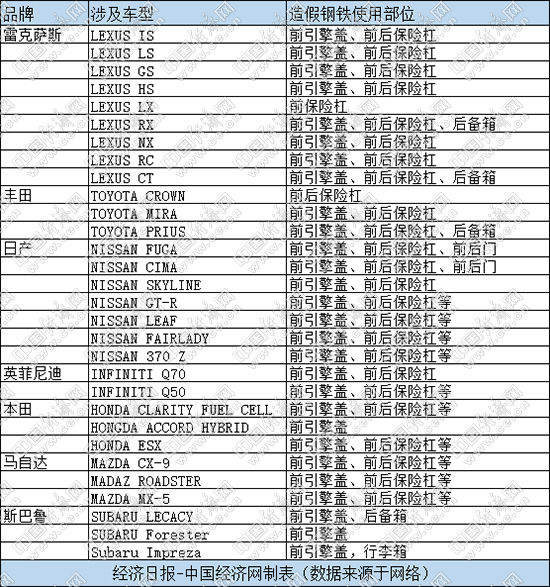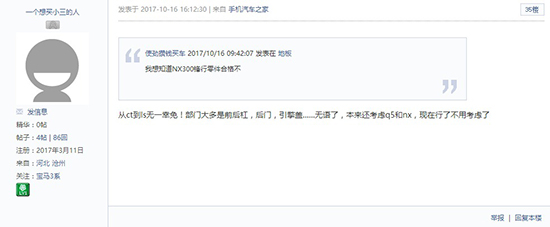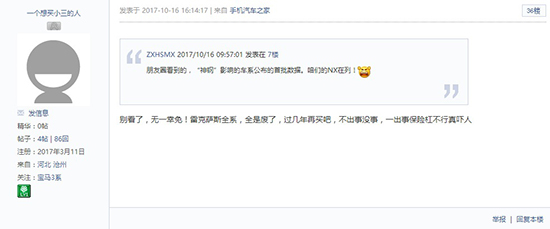According to the news on October 31st of the China News Service, Japanese media reported that on October 30, the Ministry of Land, Infrastructure, Transport and Tourism of Japan instructed Subaru, who violated state regulations to implement new vehicles to be inspected, to carry out business rectification, and requested to report the prevention of similar problems after about one month. Recurring measures, etc. President of Subaru Ji Yongtai apologizes at press conference This is apparently on October 27, the Japanese media exposed: "Subaru has admitted that its assembly plant in Gunma Prefecture in Japan, there is unlicensed personnel involved in vehicle final inspection of the quality of non-compliance operation" incident response. On the earlier October 19th, Nissan Automobile was exposed to the "quality inspection fraud scandal." Still, in the past October and 8th, Japan’s Kobe Steel Institute’s fraud scandal broke out. The impact not only affected almost all of Japan’s manufacturing industries, but all of Japan’s auto companies were deeply trapped in them, and they affected the European and American markets. It is puzzling that after several illegal and fraudulent scandals occurred, Japanese car manufacturers almost unanimously declared that they did not affect the Chinese market. For example, on October 19, Nissan Motor Co., Ltd. decided that the six domestic automakers in Japan would stop shipments and registration of new vehicles. However, in response to an interview with a Chinese media, the Nissan China official said, "The incident only occurred at Nissan Motor's Japanese plant. The vehicles involved were sold only in the Japanese domestic market and did not affect other markets including the Chinese market. Regional market." For another example, some media reported that at the press conference on the 27th, Subaru president Ji Yongtai stated that because the quality inspection standards involving counterfeiting were set by relevant Japanese quality inspection agencies, they were not applied to export vehicles. Temporary export vehicles are not affected. What is the reason that makes the Chinese market so "immunized" and "insulated" against Japanese car scandals? This can not but arouse people's curiosity, but also because Japanese car companies in the field after the balloon incident in the negative attitude of the Chinese market, it is inevitable that people have more questions. In an interview with the Economic Daily-China Economic Network reporter, Cui Dongshu, secretary-general of the National Passenger Vehicle Market Information Association, expressed his concerns and doubts: “Whether Japanese car companies will send their hair out on the premise of knowing that there is a potential safety risk for the product? To China, the Chinese market has been unfairly treated." The media reported on October 17 that in August of this year, an investigation by the third largest steel company in Japan, the Kobe Steel Research Institute, found that the company’s products had tampered data, shoddy cases, and the history of tampering with some products was as long as 10 years. Also from the media, "according to the official website of Kobelco, its wire rods for automotive valve springs accounted for 50% of the world's market share.... Data show that nearly 50% of auto aluminum sheets produced by Kobelco are in Japan. Market share." Economic Daily - China Economic Net reporters after consulting a large number of data, statistics, since 2005, the number of imported cars in China has exceeded 10 million units, reaching 10.1 million. Among them, the total number of Japanese imported cars reached 2.534 million, accounting for more than a quarter of the total imports. No matter which of the above data, the proportion of Kobelco products in Japanese cars is very high, and there is a higher probability of counterfeiting scandals. It has an impact on cars that have entered the Chinese market in the past decade or more. As a corroboration, in mid-October, a list of “the first batch of drawings and problem exposures of Jinsteel’s involvement in the detailed debut of Kobelco†was shaken. The models involved were from many Japanese car companies, including Lexus, Toyota, Nissan and Infiniti. Seven Japanese brands such as Honda, Mazda and Subaru, and Lexus, Subaru, Toyota and Nissan have a very high percentage of imported cars. However, the history of the Japanese car fraud scandal is still being deeply scrutinized and traced, and its influence may also spread to the larger Japanese imported car range. On October 27th, Subaru was exposed that “the problem of counterfeiting in quality inspection is not a matter of the past few years, but it has existed for more than 30 years.†On the same day, some media “informed the disclosure of the informed sources, and Nissan began to fake at least for the first time. In 1979, this meant that Nissan’s fraudulent practices had lasted for nearly 40 years. Before that, Japanese media said that the Japanese Kobe Steel Institute falsified aluminum and copper product data. The person concerned pointed out that the company Domestic factories began to fake from decades ago. Forum screenshots As Japanese car fraud scandals have been frequently exposed and investigations continue to deepen, domestic consumers' uneasy feelings about Japanese cars are also constantly fermenting. For example, in the forums of some websites, many Japanese import car owners expressed doubts about the safety of their vehicles. Even some consumers who have already ordered Japanese imported cars have chosen to withdraw their cars; Big looseness. Wang Cun, director of the Imported Vehicles Professional Committee of the China Automobile Dealers Association, believes that “Japanese cars have been perceived as soft and unsafe by consumers, and this fraud scandal will further reduce the car’s consumer interest in Japan. The status in China." It can be seen that many Japanese car companies and decades of fraud scandals have affected more Japanese import car owners and their relatives and friends, affecting the people's participation in the traffic and social environment...People have reason to believe that Japanese cars The company can explain and explain to these loyal owners and tens of millions who are directly connected with it. Structured Packing,Structured Packing In Distillation Column,Ceramic Structured Packing,Structured Packing Column Ningbo Cijie Chemical Equipment Co., Ltd. , https://www.shengjie-tower.com